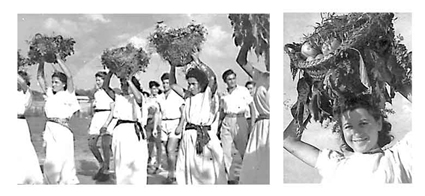2.1.08
Marriage – 3rd posting (previously – Oprah, Dr. Phil divorce and marriage )
The next important base marriage stands on, and I put a high value upon it, is work: the income it generates and the value it brings. Why Value? Value because much of married life involves unpaid work, which unfortunately, society does not recognise as work. It is not rewarded by money one can count, and therefore has no value. But is this really so?
Marriage means running a household. It means shopping, cleaning, cooking, mending, fixing, gardening, rearing children, budgeting and much more. The list is endless, as most of us know only too well.
If we take only some of the items listed and put a basic hourly rate to them, not counting after-hours penalties rates or added payment for experience and knowledge, we will find that very few families would be able afford the services rendered.
Having said that, we still come back to the fact that this work is not appreciated or valued, and one often hear the sentence, “ you do nothing all day…”
We value money. Money render independence. Whoever earns it has the power to give - thus the right to deny, and it becomes a whip with which the earner gets control over the other.
In a marriage, which I believe to be a union of equals, this is unacceptable. I therefore feel that both partners in a marriage should earn. The amount earned is not important. What is is that it gives independence. The mere fact that one does earn, takes the power of’ ‘giving’ or ‘denying’ out of the equation, producing, consciously or unconsciously, the equality good marriage requires.
With money being earned by both partners, the unpaid work has to be shared willingly between them as well. It should never come to the following situation:
A young lady who I’d call Jane, and her partner Max, told me the following:
She and Max fell in love and decided to live together. Both had full time jobs. Every day, on her way home, she did the shopping, put it away, cooked, set the table and cleaned. Max, on the other hand, came home, took his shoes off and reclined to read his paper. He ate his meal when it was ready and attended to his heart desires afterwards. He did not bother to lift even a finger to help.
A year passed and Jane had enough.
Max, she said, I am leaving. And Max replied,
Why are you leaving? We are having it so good…
Yes. You are having it so good… She replied.
You see; Jane became a slave in a partnership that is not a partnership.
Marriage entails daily chores, which need to be attended to willingly and automatically by both partners, and without prompting. It shows respect, love and concern and brings the pleasure of doing even the little things or the unattractive ones together.
In my next posting on the subject, I’ll try and tackle ‘the family unit and children.’
Renate
http://www.promisedland-renate.com/
Subscribe to:
Post Comments (Atom)
Click on the link below to read more

Bicurim feast in the kibbutz highschool
Hi Walter and Annette,
Thanks for the feedback. Pleased you enjoyed reading it. What happened to the boat, comes in a period after the book ends and maybe a part of the next book...






No comments:
Post a Comment